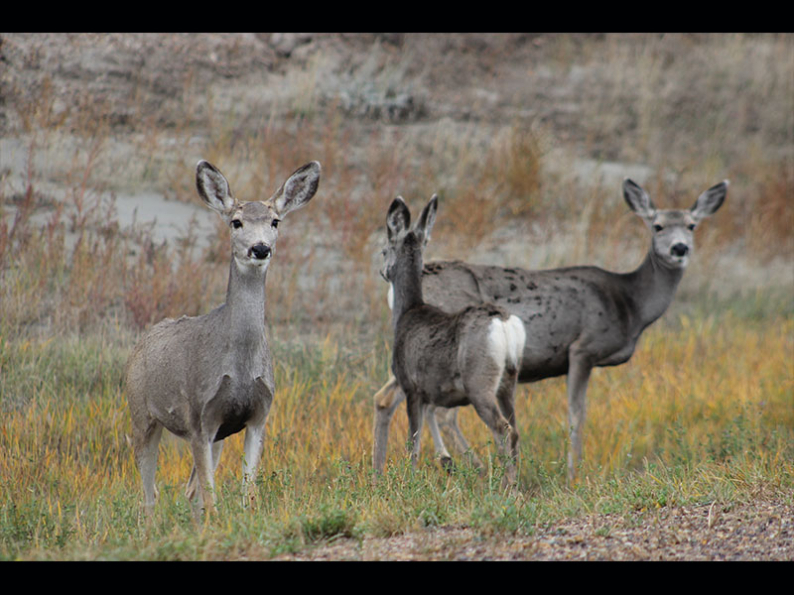
Biologists counted 2,446 mule deer in the aerial survey in October. The buck-to-doe ratio of 43 bucks per 100 does was higher than last year and the same as the long-term average. The mule deer fawn-to-doe ratio was 84 fawns per 100 does, which was higher than 2017 but slightly lower than the long-term average of 89 fawns per 100 does.​
Big game biologist Bruce Stillings said mule deer fawn production has been on a positive trend since 2013, following record low fawn production after the winters of 2008-09 through 2010-11. ​
“This is encouraging news for continued growth of mule deer in the badlands,” Stillings said. “Mule deer fawn-to-doe and buck-to-doe ratios were at or near their long-term averages in all management regions except the northern badlands, which includes hunting unit 4A.”​
The fall aerial survey, conducted specifically to study demographics, covers 24 study areas and 306.3 square miles in western North Dakota. Biologists also survey the same study areas in the spring of each year to determine deer abundance.